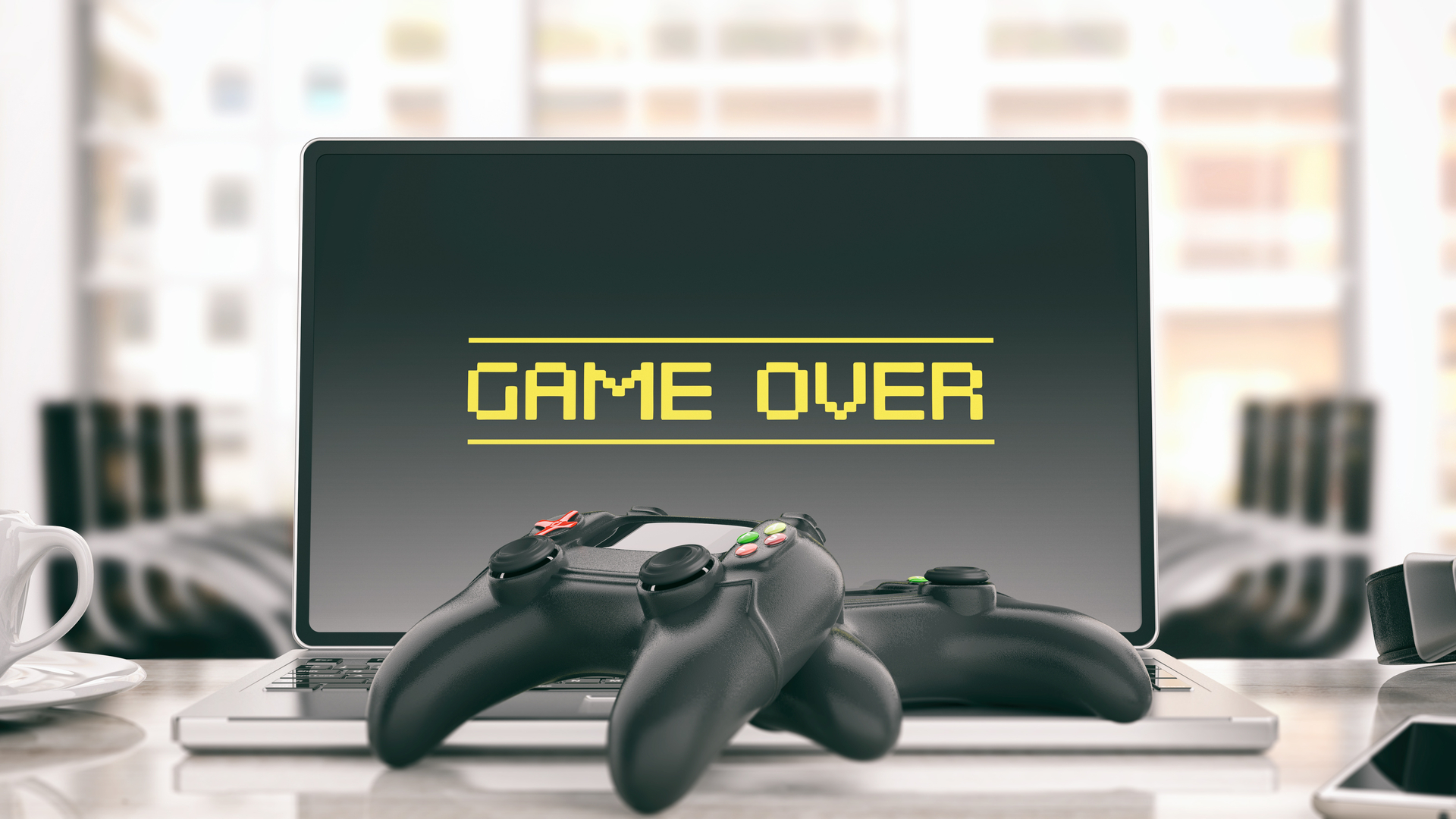PS5 vs Nvidia gaming laptops – who will win the battle for gamers' cash?
Can the PS5 compete?

Recently, Nvidia’s CEO Jensen Huang claimed that Nvidia-powered gaming laptops will beat the PS5 and Xbox Series X to be the most popular ‘console’ in the world – a pretty bold claim, but how likely is it?
Even without knowing the specs of the PS5 and Xbox Series X, there’s a good chance that gaming laptops will be able to match the two upcoming consoles when it comes to performance.
Games consoles these days should last around five years before another generation arrives, so even if only the most powerful gaming laptops will be able to compete with the PS5 when it launches at the end of 2020, you can be sure that in five years’ time, the majority of gaming laptops will.

While power isn’t a concern, price certainly is. We don’t know much about the PS5's price at the moment, but it’s a decent bet that it will be under $500/£500. While that’s pretty expensive for a game console, it’s impossibly cheap for a gaming laptop, and I have a feeling that the PS5 will certainly beat gaming laptops at that price for a good while – especially if Sony realizes the PS5’s 8K gaming ambitions.
Sony will be able to keep the cost of the PS5 down by buying components in bulk. That’s the benefit of having a single company behind a hugely popular product. Gaming laptops don’t have that luxury – they are made by loads of different manufacturers. While this has its benefits – primarily more choice for the consumer – it means the cost of building gaming laptops is higher, and that cost is passed on to the customers.
Sony and Microsoft will be vying for the same market, as well, so we could see each company selling their consoles at a loss in a bid to get the upper hand. After all, they can make up the money they lose by taking a cut from the games they sell, as well as their PS Plus and Xbox Live subscription services, again something laptop makers can’t do.
So it’s highly unlikely there will be a gaming laptop that will match the PS5’s price and performance at launch – unless Nvidia starts giving away its GPUs to laptop makers for free. Something I don’t think the company will consider.
Sign up for breaking news, reviews, opinion, top tech deals, and more.

Sales figures
But what about sales figures? While I have no idea how many units Sony and Microsoft will sell during the next generation, the PS4 has sold around 106 million units. Meanwhile, Microsoft has been coy about Xbox One figures, and I think it’d be lucky to have sold 50 million.
So, that’s about 160 million in seven years. But what about gaming laptops? That’s harder to track, but a report last year by International Data Corporation (IDC), titled the Worldwide Quarterly Gaming Tracker, forecast that in 2019 there will be 19.4 million shipments of gaming laptops.
Last year was a good year for PC gaming sales, so that might be a higher number the previous years (as gaming laptop and desktop sales were on a downward trend), but if we say on average there are 20 million gaming laptops sold a year – and this is me being generous – then it would take five years to match what Sony sold of the PS4 in seven.
So, if gaming laptops continue to sell as well as they do – and the PS5 sells the same as the PS4, which is unlikely considering how good PS4 sales have been – then Nvidia might not be too far off the mark. Sure, Nvidia was talking only about Nvidia-powered gaming laptops, but even with AMD’s recent renaissance, the vast majority of gaming laptops will still be powered by team green.
Let’s not forget that these are new laptop sales we’re talking about as well. Unlike the PS4 and Xbox One, existing gaming laptops will be forward compatible, meaning they will be able to play games that come to PC in the next five or more years. Sure, they might not play them that well, but you can always tweak the settings (unlike on games consoles) to get a playable experience.

Plus, there's also Nvidia GeForce Now, the game streaming service that has the potential to turn any laptop with an internet connection into a gaming laptop. With the news that Cyberpunk 2077 is launching on GeForce Now, there’s a good chance your battered old laptop could play CD Projekt Red’s graphically-demanding game better than the original PS4 and Xbox One consoles – internet connection permitting, of course.
All of this boosts the gaming laptop population even further. Looking at pure sales numbers, there’s actually a very good chance that Nvidia gaming laptops will sell more than the PS5 during its lifetime. If you think of gaming laptops as a whole as a gaming console, then sure, it could be the most popular gaming console in the world.

What makes a console a console?
But is it fair to call a gaming laptop a game console? I don’t think so. In fact, it does a disservice to both gaming laptops and game consoles.
The best gaming laptops offer so much more than just gaming. You can use them for work – thanks to their powerful GPUs, gaming laptops can make excellent workstations for 3D artists, for example. They are always going to be much more versatile than a games console.
Meanwhile, the beauty of a games console is its affordability and simplicity. If you buy a PS5, you should be confident that even in five years’ time, it’ll still play PS5 games. You won’t have to nervously check out the minimum specifications of a game to see if your device will run it.
And, while games consoles are taking some bad habits from gaming PCs and laptops, such as introducing mandatory updates and day-one patches, you won’t have to deal with a crappy Windows 10 update – something gaming laptop owners are plagued by.
So, is Nvidia right to say that gaming laptops will be the most popular consoles? Surprisingly, in a way it is. But also, in many other ways it’s not.
But that’s not really important. What is important is that with the launch of the PS5 and Xbox Series X, modern games will no longer be held back by the seven-year-old tech in the PS4 and Xbox One. This will lead to more immersive and ambitious games in the future – and that’s something that PC gamers will be able to benefit from as well.
- These are the best PC games of 2020
- Shop the latest cheap gaming monitor deals from across the web

Matt is TechRadar's Managing Editor for Core Tech, looking after computing and mobile technology. Having written for a number of publications such as PC Plus, PC Format, T3 and Linux Format, there's no aspect of technology that Matt isn't passionate about, especially computing and PC gaming. He’s personally reviewed and used most of the laptops in our best laptops guide - and since joining TechRadar in 2014, he's reviewed over 250 laptops and computing accessories personally.